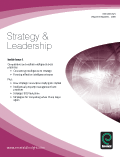Avery, G.C. & Bergsteiner, H. 2011.
How BMW successfully practices sustainable leadership principles.
Strategy & Leadership, 39(6), 11-18.
Abstract
Purpose
– This BMW case aims to show how many of the company’s practices that accord with principles espoused in the authors’ sustainable leadership model contributed to its recovery after the global financial crisis (GFC).
Design/methodology/approach
– This case illustrates how BMW institutes the 23 honeybee leadership principles and practices described in the authors’ 2011 article “Sustainable leadership: practices for enhancing business resilience and performance” in Strategy & Leadership.
Findings
– The examples provide a glimpse into the honeybee practices that enabled one firm to emerge successfully from the GFC. Regarding the five performance outcomes on the sustainable leadership pyramid, BMW clearly exceeded expectations in 2010 on financial returns and shareholder value.
Practical implications
– Clearly BMW provides long‐term value for all its stakeholders – suppliers, shareholders, employees and customers – as is expected of a sustainable enterprise. BMW’s business model, innovative approach to problem‐solving and adherence to sustainable leadership practices underpin a capacity to survive crises such as the GFC.
Originality/value
– This is a rare case study of corporate‐wide sustainability practices and principles in operation. Informed by the examples of best practices at BMW, managers at other companies can envision how honeybee management might be implemented at their firm.
You may be able to get access to the full-text via your institution.

